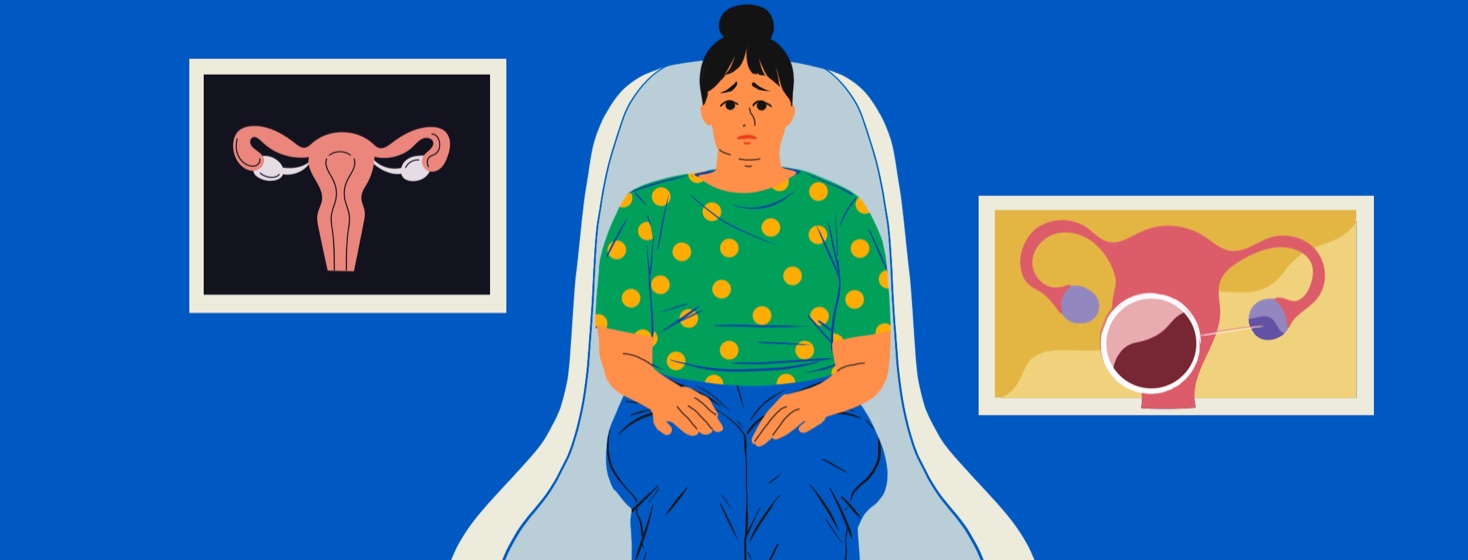Fat Patients With Endometriosis Face a Double Whammy of Medical Stigma
Most endometriosis patients face a vicious cycle of doctors discrediting their pain. For a fat person, a doctor’s visit may be discouraging at best and dehumanizing at worst.
Time is of the essence when diagnosing and treating endo
Endometriosis is a chronic condition. Prompt diagnosis is key to preventing endometriosis from causing lasting damage to a patient’s uterus, bowels, and other internal tissues.
For many patients, diagnosis can take upward of ten years. We can imagine how many hours an average endo patient may while away in doctor’s offices, trying to convince their practitioner or OB/GYN to approve a laparoscopy.
However, fat people only receive a portion of that face-to-face time with their doctor. When a fat person makes a doctor’s appointment, time is already stacked against them.
The heavier a patient is, the less time a doctor will spend with that patient
According to a 2017 paper in The Journal for Nurse Practitioners, the majority of doctors tend to perceive obese patients as “awkward, unattractive, ugly, and non-compliant.” These stereotypes may influence a doctor to think that a patient is overestimating their pain.
Furthermore, obese patients may get almost ten fewer minutes to meet with their doctors than do patients who are not fat. In other words, if an fat patient books a thirty-minute appointment, the doctor may dismiss them after about twenty minutes. 1
More time is needed to discuss treatment options when seeing your doctor
Those twenty-minute consultations may not be adequate time to discuss the range of a patient’s symptoms and their treatment options.
Classic endometriosis symptoms include digestive problems, irregular or heavy periods, stomach aches, and leg pain. When an obese patient brings up these concerns, a doctor could misdiagnose these pains as the result of obesity rather than an underlying menstrual illness.
Instead of referring the patient for endo screenings, that doctor might prescribe diet and exercise. Meanwhile, that patient’s endometriosis may continue to worsen, and a doctor may continue to shrug and ask, “Why aren’t you losing weight?”
This medical fatphobia is cruelly ironic considering that obese people may be at higher risks of developing severe forms of endometriosis.2 So while a fat patient may be statistically more likely to have endometriosis complications, doctors are predisposed to not address that patient’s complaints in the first place.
These fatphobic stigmas add an undue burden to fat patients who struggle from endometriosis, a condition that is already under-reported and under-diagnosed.
Fat patients deserve better care
Fortunately, there are several strategies that a fat person can use to advocate for themselves:
- Seek out medical professionals that specialize in menstrual illnesses.
- Set up an initial consultation to ask a new doctor about their experience treating obese patients. You may want to bring up your concerns about medical fatphobia, and you can ask the doctor about how they avoid these stigmas with their patients.
- You may feel more comfortable seeking out medical professionals who can directly empathize with your situation. Depending on your healthcare plan and the doctors in your area, it may be possible to request a practitioner who is also fat and/or has a chronic menstrual illness.
- Ask fat friends to share their experiences (good, bad, and ugly) with different practitioners.
- Being a fat endometriosis patient can feel lonely. Follow social media pages about endometriosis (like Endometriosis.net’s Facebook page!). You can also join ‘wellness at any size’ or ‘being fat with a chronic illness’ groups to vent, to share advice, and to find a sense of community.
- Keep a detailed log of all of your symptoms to show to your doctor during your appointments.
- Check out the American Board of Obesity Medicine to get recommendations.3

Join the conversation